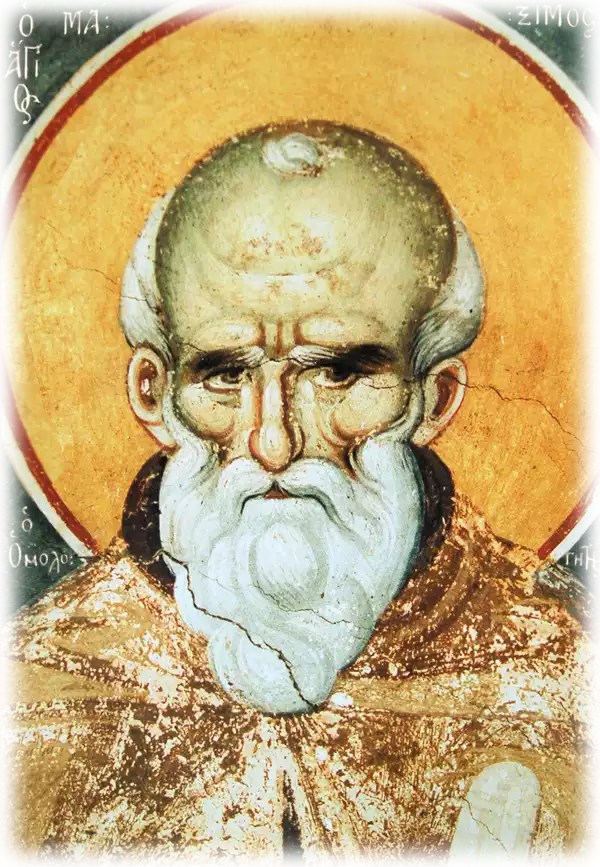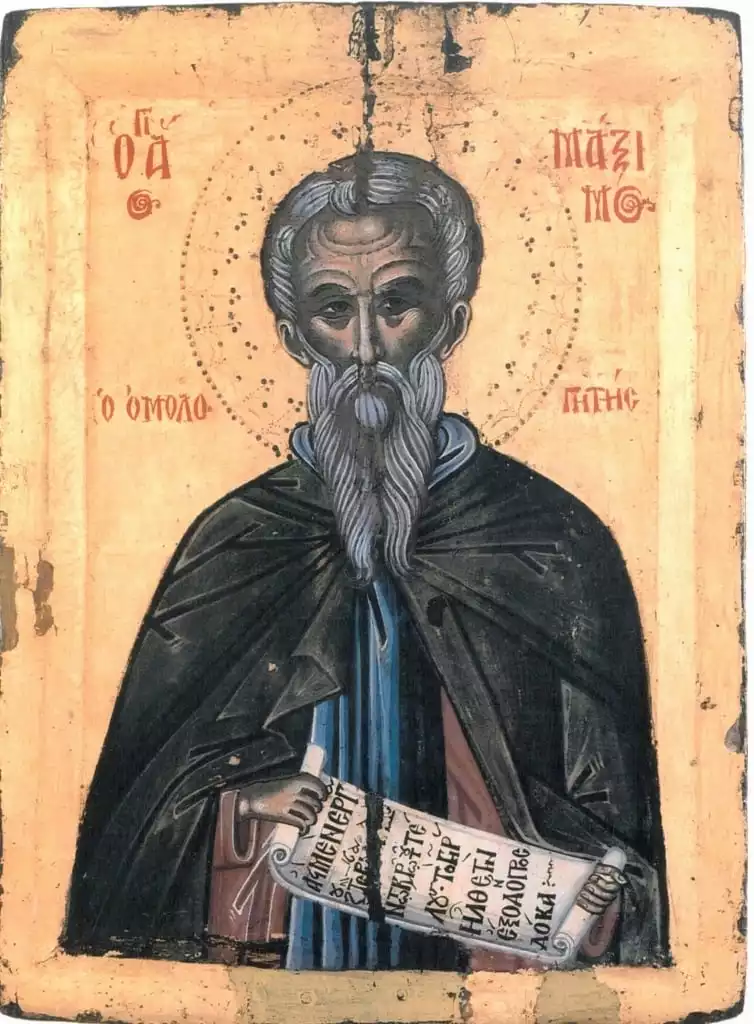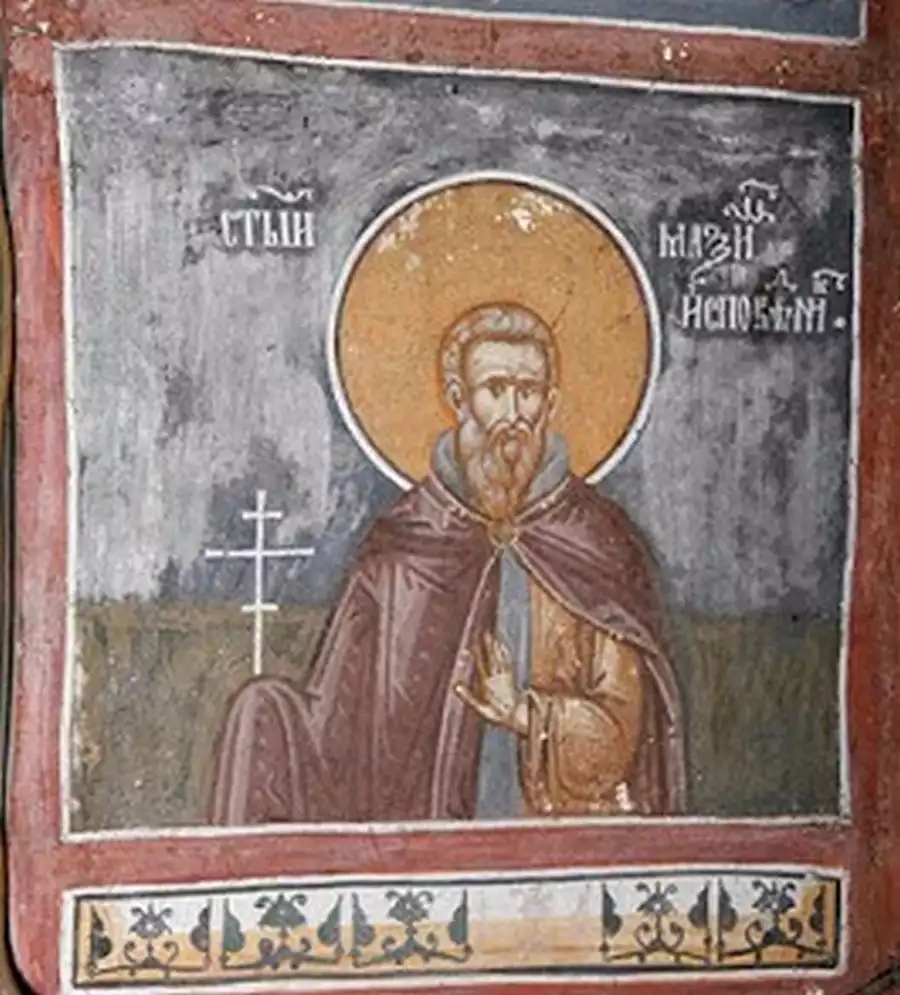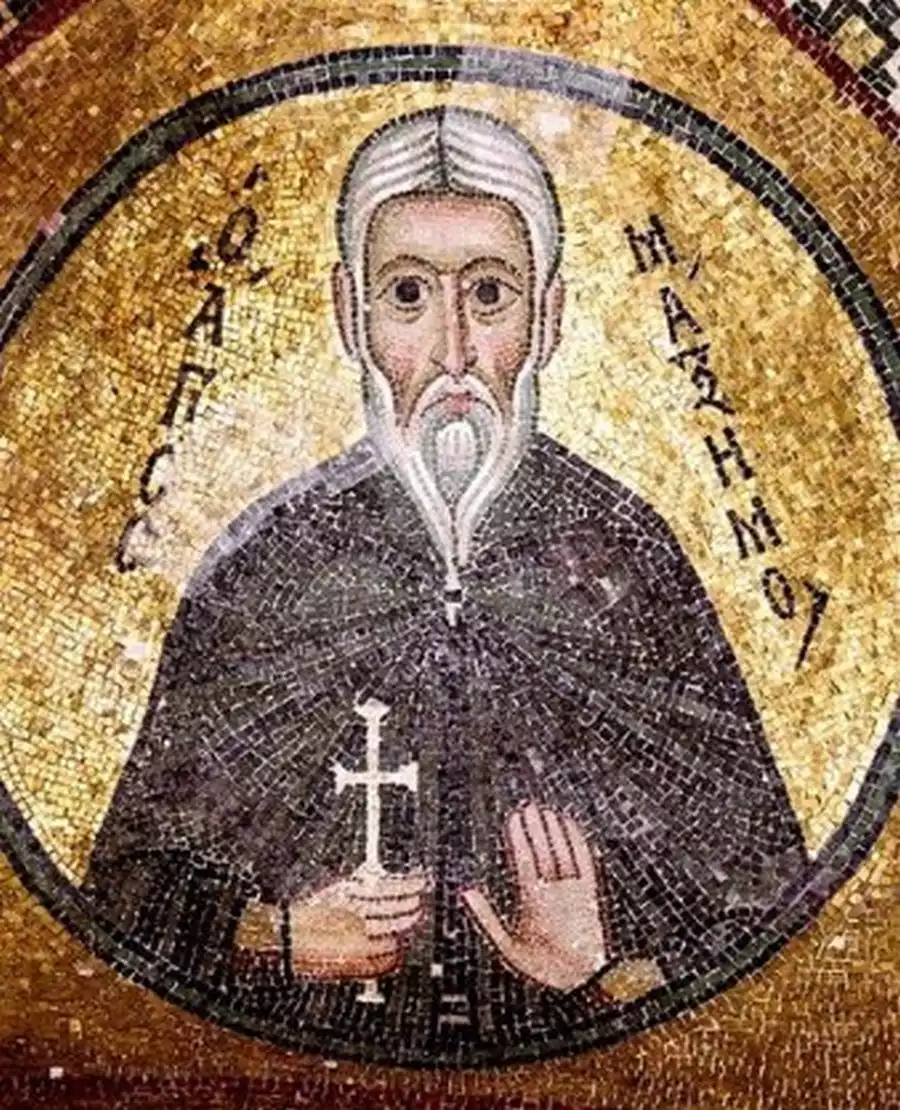
Diving into the spiritual depths of the early Christian era, we encounter Saint Maximos the Confessor (c. 580 – 13 August 662), a figure whose impact on Christian theology and philosophy remains profoundly influential. His life, a tapestry woven with threads of devotion, intellectual rigor, and unwavering faith, offers a unique lens through which to view the complexities and challenges of his time. Born in Constantinople, Saint Maximos emerged as a pivotal thinker amid the theological and political turmoil of the 7th century. His journey, marked by contemplation, conflict, and courage, not only shaped his era but also echoes through the corridors of time, inviting us to explore the legacy of a man whose thoughts transcended his own lifespan, providing guidance and inspiration for generations to come.
Early Life and Monastic Calling
Saint Maximos, born into a noble family in the Byzantine capital, displayed an early inclination towards spiritual and philosophical pursuits. His thirst for knowledge and devotion to Christian teachings propelled him onto a path less trodden – the monastic life. Renouncing worldly comforts and titles, Maximos embarked on a journey of asceticism, seeking to deepen his understanding of Christian doctrine and spirituality. This chapter peels back the layers of his early life, revealing how his upbringing and intellectual environment shaped the man who would become a monumental figure in Christian history. As we delve into this transformative period of Maximos’s life, we uncover the seeds of his later theological contributions, setting the stage for a journey that would redefine the contours of Christian thought.
Theological Insights and Controversies
The intellectual landscape of the 7th century was a battleground of theological ideas, and it was here that Saint Maximos the Confessor etched his indelible mark. His profound insights into the nature of Christ and the will of God positioned him at the heart of the Christological debates of his time. Maximos staunchly defended the doctrine of Dyothelitism – the belief in the two wills of Christ, divine and human. This stance placed him in direct opposition to the prevailing Monothelite doctrine, which posited a single will in Christ. His writings, brimming with eloquence and depth, articulated a vision of Christ’s nature that was both revolutionary and steeped in orthodox tradition. These ideas, encapsulated in works like ‘Disputations with Pyrrhus’ and his ‘Ambigua’, were not mere theological musings but a bold stand against what he perceived as doctrinal errors threatening the Church’s core beliefs. His unwavering commitment to theological truth, however, brought him into conflict with the ecclesiastical and imperial authorities, leading to a period of turmoil and personal suffering in his life.

Exile and Martyrdom
In a stark turn of events, Saint Maximos’s unwavering stance on the Dyothelite doctrine led to his exile. The political and religious landscape of the Byzantine Empire, intertwined as they were, viewed his teachings as a threat to the fragile unity of the Church and the State. Maximos’s exile was more than a geographical displacement; it was a testament to his unshakable faith and integrity. Despite the harsh conditions and isolation, his exile years were marked by a prolific output of theological work, letters, and spiritual counsel. His correspondence with various monastic communities and individuals during this time reflected not only his theological depth but also his pastoral sensitivity. Tragically, the conflict over his beliefs escalated, leading to his trial and condemnation. Maximos’s final years were marred by brutal persecution, including mutilation, which served as a grim testament to the extreme measures his opponents were willing to take. Yet, through all this, he remained steadfast in his faith, his writings continuing to inspire and challenge. His martyrdom, a culmination of his lifelong dedication to the truth, sealed his legacy as a pivotal figure in Christian history. His endurance in the face of adversity and commitment to his beliefs underscore the profound impact he had on the theological and spiritual landscape of Christianity.
Spiritual Teachings and Philosophical Impact
Saint Maximos the Confessor’s spiritual teachings transcended mere doctrinal discourse, delving deep into the realms of mysticism and the pursuit of theosis – the process of becoming one with God. His philosophical impact is evident in his synthesis of Christian doctrine with Neoplatonic thought, a feat that showcased his profound intellectual prowess. Maximos’s works, notably his ‘Mystagogia’, explore the intricate relationship between the Church and the cosmos, offering a vision of creation steeped in divine purpose. His emphasis on ascetic practices and the transformation of the human will towards divine love is a cornerstone of his spiritual guidance. These teachings, which blend deep theological insights with practical advice on the spiritual life, have had a lasting influence on both Eastern and Western Christian traditions. Maximos’s legacy in this realm is not merely academic; it is a living tradition that continues to inspire those seeking a deeper understanding of their faith and the path towards spiritual union with God.
Legacy and Veneration
The legacy of Saint Maximos the Confessor is a tapestry of enduring theological significance and spiritual inspiration. His contributions to Christian thought have been venerated for centuries, echoing through the halls of theological discourse and monastic communities alike. The Orthodox Church honors him as a confessor and a father of the faith, celebrating his feast day with reverence and gratitude for his contributions. In the Western Church, his writings have been a source of scholarly interest and spiritual reflection, contributing significantly to the development of Christian theology. The veneration of Saint Maximos extends beyond liturgical commemorations; it is found in the ongoing study and engagement with his works. His teachings on the unity of Christ’s nature, the role of the will in spiritual life, and the cosmic significance of the Church continue to be relevant in contemporary theological discussions. His enduring legacy is a testament to the power of faith, intellect, and unwavering commitment to truth, making him a luminary figure in the history of Christianity.

Influence on Eastern Orthodox Theology
Saint Maximos the Confessor’s influence on Eastern Orthodox theology is both profound and far-reaching. His work provides a pivotal link between the patristic traditions and the later Byzantine theological synthesis. Maximos’s contributions, particularly in Christology and the understanding of the human condition, resonate deeply within the Orthodox tradition. His defense of Dyothelitism played a crucial role in shaping the Orthodox understanding of Christ’s nature, emphasizing the perfect union of divine and human wills in Christ. This theological stance was not just a doctrinal position but a profound statement on the potential for human deification, a central theme in Orthodox spirituality. Furthermore, Maximos’s insights into the transfiguration of the world and the eschatological fulfillment of creation offer a unique perspective on the cosmic role of the Church. His interpretations of Scripture and the liturgy have deeply influenced Orthodox worship and spirituality, imbuing them with a richness and depth that continues to inspire believers. The legacy of Maximos in Eastern Orthodoxy is not confined to the past; it is a living tradition, continually informing contemporary theological thought and spiritual practice.
Maximos’s Impact on Western Christian Thought
In the Western Christian tradition, Saint Maximos the Confessor’s impact, though initially more subdued than in the East, has grown significantly in contemporary theological discourse. His integration of Greek philosophical concepts with Christian doctrine provided a foundation for later Western theological developments. Maximos’s approach to the mysteries of faith, blending intellectual rigor with mystical experience, resonates with key aspects of Western theology, especially in the areas of Christology and the nature of the Church. His writings, particularly on the will and freedom, have influenced Western Christian thought on the nature of human agency and its role in salvation. In recent times, the ecumenical dialogue between the Eastern Orthodox and Roman Catholic Churches has reinvigorated interest in Maximos’s works, recognizing their value in bridging theological divides. His emphasis on the cosmic dimension of Christ’s work has found echoes in contemporary Western theological reflections on creation and eschatology. Maximos’s legacy in Western Christianity is one of enriching the theological tradition with a depth that transcends geographical and denominational boundaries, making his teachings a valuable resource for Christians worldwide seeking a deeper understanding of their faith.

Contemporary Relevance and Enduring Wisdom
In an era marked by rapid change and diverse spiritual inquiries, the teachings of Saint Maximos the Confessor offer enduring wisdom. His insights into the human condition, the nature of God, and the path to spiritual unity are as relevant today as they were in the 7th century. Maximos’s emphasis on the transformative power of love and the pursuit of divine union speaks to the modern longing for deeper spiritual meaning. His understanding of the interconnectedness of all creation offers a valuable perspective in contemporary discussions on ecology and spirituality. The Confessor’s legacy is not confined to the annals of history; it is a living tradition, continually inspiring those seeking a deeper understanding of the Christian faith and its relevance in today’s world.
Saint Maximos the Confessor, a beacon of theological brilliance and spiritual depth, continues to illuminate the path of countless Christians across the globe. His life, marked by intellectual rigor and unwavering faith, stands as a testament to the enduring power of spiritual conviction. Maximos’s teachings, transcending time and cultural boundaries, remain a guiding light for those navigating the complexities of faith, reason, and the quest for divine union.
Feast Day: January 21
Patron Saint: Theologians, Monks
References
Berthold, George. “Maximos the Confessor: Selected Writings.” Paulist Press, 1985.
Blowers, Paul M. “Maximus the Confessor: Jesus Christ and the Transfiguration of the World.” Oxford University Press, 2016. Accessed 20 January 2024.
Louth, Andrew. “Maximus the Confessor.” Routledge, 1996.
Meyendorff, John. St. Maximus the Confessor: The Ascetic Life, The Four Centuries on Charity.” St Vladimir’s Seminary Press, 1981.
Sherwood, Polycarp. “Annotated Date-List of the Works of Maximus the Confessor.” Brepols Publishers, 1952.
Thunberg, Lars. “Man and the Cosmos: The Vision of St. Maximus the Confessor.” Oxford University Press, 1985. Accessed 20 January 2024.
Törönen, Melchisedec. “Union and Distinction in the Thought of St Maximus the Confessor.” Oxford University Press, 2007.
Törönen, Melchisedec. “Maximus the Confessor and his Companions.” Fordham University Press, 2003. Accessed 20 January 2024.
Wear, Sarah, and Dillon, John. “Maximus the Confessor and his Companions: Documents from Exile.” Oxford University Press, 2002. Accessed 20 January 2024.
Aristotle University of Thessaloniki, 2024. Accessed 20 January 2024.
